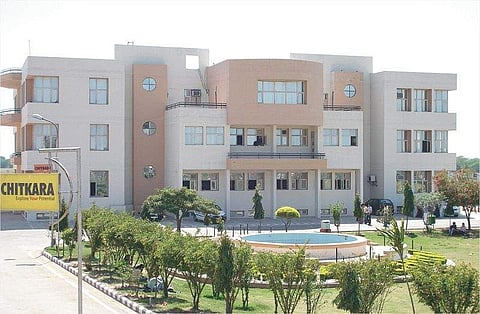

The VLSI Centre of Excellence, Chitkara University, Punjab, India in collaboration with Semi-conductor Laboratory (SCL), Mohali, Punjab, India have designed and fabricated a low-voltage low-noise neural amplifier silicon chip in 0.18 µm technology useful for diagnosis of various chronic diseases like Parkinson, Spinal cord injuries, Epilepsy and Paralysis etc.
This neural amplifier chip was released in an event held on the Chitkara University campus on today in the presence of Dr Madhu Chitkara (Pro-Chancellor, Chitkara University), Dr Archana Mantri (Vice-Chancellor, Chitkara University) and H S Jatana (Group Head - Design and Process group, Semi-conductor Laboratory (SCL), Mohali, Punjab, India).
Speaking on the occasion, Dr Madhu Chitkara reiterated the University's commitment to promoting the cause of research and innovation so as to pass on the maximum benefit to its students who eventually are nation builders of tomorrow. Dr Archana Mantri, Vice-Chancellor, Chitkara University expressed her happiness about the way outcome based research to benefit the society has been one of the important goals of any research tasks taken up at the university.
The designed neural amplifier silicon chip can also be used in developing neural prosthetics systems for physically disabled persons. Kulbhushan Sharma under the supervision of Senior Professor Dr Rajnish Sharma from Chitkara University and SCL team led by H S Jatana was associated with this work.
The layout and post-layouts simulations of neural amplifier silicon chip were performed by Kulbhushan Sharma during a few months training at SCL under the observation of SCL Senior Scientist Rahul Kumar Tripathi. This work is an example of hand in hand efforts put forth by both academia and industry which is useful not only for clinics and patients but also to the research scholars and circuit design community working in bio-potential signal recording all over the world.
